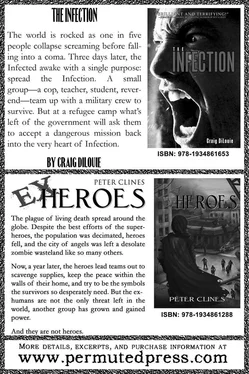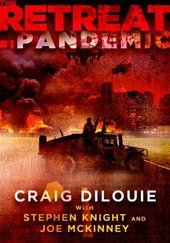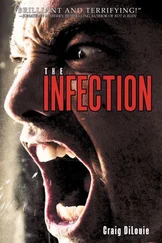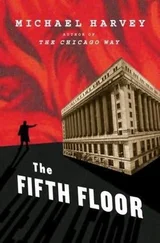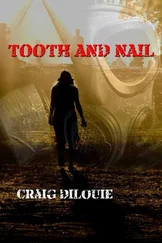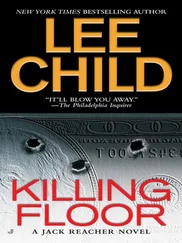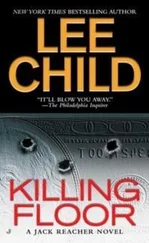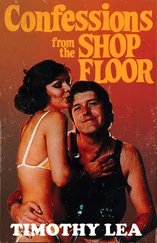Treading with painstaking slowness over the jagged edges, slicing their uniforms and legs, they work their way back to the part of the road that is cleared, and jog toward their lines.
Minutes later, the outline of a Bravo Mike emerges from the gloom, lying on its side and defecating in its death throes. The soldiers give it a wide berth and find themselves confronted by a looming hill of dying monsters, their tentacles still thrashing. They hear men screaming.
“Over here,” Davis calls from the flank.
He shows them a way around. Further down the street, they find more of the monsters lying dead or dying among trampled human remains. Several sprawl broken across the front of the Hercules. Beyond, even more lie among Stryker vehicles flipped onto their sides or jammed against each other. One vehicle has been shoved half inside the front of a Thai restaurant.
Men scream for medics. Soldiers run everywhere. A military ambulance lurches to a halt and discharges stretcher bearers moving at a sprint.
“Make a hole! Make it wide!” several soldiers shout at them as they race past, carrying a screaming man with a shattered leg. Rod jumps aside and catches a glimpse of bone jutting from torn fatigues.
Rod watches them go and feels an unnatural rage take hold of him.
What a waste of the world’s finest combat infantry.
“What are your orders, Sergeant?” Davis asks him.
“Sergeant Rodman!” Lieutenant Sims calls. He and Kelley stand in front of the diner where they gave Rod his orders less than an hour ago.
Rod jogs over to the Lieutenant with his squad in tow.
“Good to see you and your men back in one piece, Sergeant,” Kelley says.
“You too,” Rod responds. He tells the boys to get inside the diner and wait for orders, then turns to Sims. “How bad is it, sir?”
“As bad as it looks. We’re still sorting it out. We made out okay, but First Platoon lost some good men.”
“The big bastards slammed into the Hercules,” Kelley says. “It was like watching tomatoes thrown against a wall. The guys were cheering. Then the rest of the Bravo Mikes just ran right over it. Plowed straight into Comanche.”
“The Captain appreciates your heads up on the radio,” Sims says. “That was good work.”
“Thank you, sir,” Rod says impatiently. “What can we do to help here?”
“Nothing,” Sims tells him. “They’re taking us off the line.”
“To hell with that,” Rod snaps, feeling the rage surge inside him again. “We can help the docs get the wounded into their vehicles for evac.”
“Rod, our people are in good hands,” Kelley says. “We’re getting a lot of help. We’ve got to let the docs do their job. We’d just be in the way.”
Rod sets his jaw. “Then we’ll go back out and finish our recon.”
“We’re done here, Rod,” Sims says. “We’ve done everything we can. Now get your men ready to move. Got it?”
“Aieeyah, sir,” Rod mutters.
He turns and gazes across the chaotic scene still playing out around them: the dead smeared across the asphalt like road kill, the wounded being loaded onto stretchers, the soldiers wandering around dazed and crying until their comrades come to comfort them.
What a waste.
“Fuck this,” he hisses under his breath.
Every time we win back some of this city, we get a little closer to losing all of it.
♦
The men ran at him in their torn and bloodstained uniforms, faces flushed, eyes gleaming with fever. Rod and Lieutenant Pierce watched them come, rooted where they stood. They were talking about redeploying stateside when the base alert siren started to wail; the Lieutenant’s friendly question still hung in the air: What’s the first thing you’re going to do when you get home? Gunfire popped across the base. Soldiers fought with each other everywhere in view; a few of them were shooting. At first, Rod thought a couple of soldiers had gone nuts—not uncommon after the trauma of the Screaming three days earlier—and were shooting up the base, while the unarmed soldiers were trying to stop them. Then he realized something was wrong; the unarmed mobs were attacking everyone. They were coming for him . Rod raised his shotgun and roared at the snarling pack to stop or he would fire on them. The crowd resolved into the faces of the men he led for a year in Afghanistan, glaring at him with open hatred. His shotgun sagged in his hands, still a part of him, but now forgotten. Seeing the men he kept alive on Baghdad’s mean streets for a year, howling at him in a blind rage, shocked him to the bone. These are my guys and they want to kill me , he thought. They’re coming to kill me and I don’t know what I did to deserve it . Pierce was screaming, What do we do? What do we do, Sergeant? Rod stared back into the eyes of his men and thought, I’m sorry for whatever I did . Pierce’s rifle fired with a metallic crack and puff of smoke, dropping one of the sprinting figures. Shit , he said. I just shot somebody. They won’t stop. They just keep coming. Rod? Rod? As the pack closed the final yards, the man blew air out his cheeks, shouldered his weapon, and shot them down with cold efficiency.
Pierce is screaming at him, What did you do, Rod? What did you do? Rod looks down in horror at the smoking barrel of his weapon and says, Christ, it was me. I did it. I killed them all. It was me.
Rod lurches out of sleep, sitting up and snatching his shotgun. The soldier who was kicking the sole of his boot jumps back with a panicked yelp. Rod glares at him.
“Why’d you kick me?” he says, furiously rubbing sleep from his eyes.
“I wanted to wake you without getting my head torn off,” the soldier tells him.
He nods and stands, gritting his teeth at a dozen minor aches. The soldier takes a second step back, still unsure of Rod’s intentions. Just another kid, clean shaven and dressed in an ironed uniform with two chevrons on the shoulder, signifying his rank as corporal. Obviously a “person other than a grunt,” or POG for short. He’s so small he appears to be fifteen. Hell, maybe he is.
Rod can’t get past the horror of the dream. The boys of his old outfit looked just as he remembered them in life. He finds it strange that this time, he was the one who shot down his platoon instead of Pierce. Strange, but not too troubling; his survivor’s guilt often makes him feel like he is responsible for their deaths in some way. The real horror is he remembers the faces of the dead so well, while the mental image he has of his wife and children continues to fade over time. Sometimes he cannot remember his son’s face.
He hawks a black gob of phlegm onto the ground. “Why’d you wake me up at all, Corporal?”
“Captain Rhodes wants to see you, Sergeant. I’m supposed to take you to her.”
Christ , he thinks. We just got here. Why are they sending us back out so soon?
“All right,” he says. He spits again and takes a swallow from his canteen. He can’t get the burned charcoal taste of ash out of his mouth.
“Here, Sergeant. Try this.”
The kid offers a packet of flavored powder, which Rod accepts with a nod. He pours a little into his canteen and swirls it around. Instant fruit drink. He take another swallow. Better.
“Outstanding,” Rod says, spitting again. “Thanks for that.”
“Close of business is in an hour, so you have time to get cleaned up, Sergeant,” the kid says quietly, adding the hint: “Captain Rhodes is in Major Duncan’s office.”
Rod sighs loudly, suppressing another surge of rage. You’d think the rear echelon motherfuckers like Major Duncan would change their tune and try to be useful during the end of the world, but some things never change, even during the apocalypse. The infantry often looks down on all the POGs—everyone in the service believes they are part of an elite unit and winners of the big dick contest—but they don’t hate them. Rod does not hate the kid standing in front of him, nor does he hate the mechanics who keep his Stryker operational, the guys who cut his hair, the cooks who load his plate in the chow line. What Rod does hate is officers who bust men returning from combat for dirty uniforms and stubble and flaring sideburns. Officers like Major Duncan, the chairborne ranger the boys call Major Dookie.
Читать дальше
